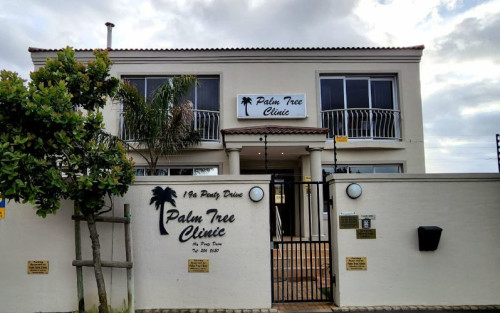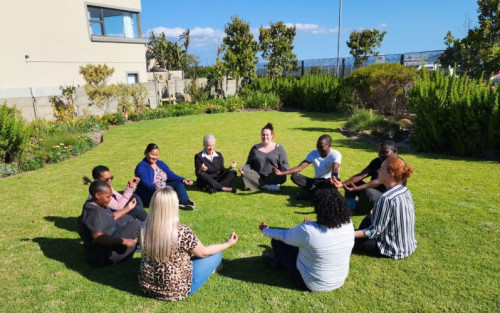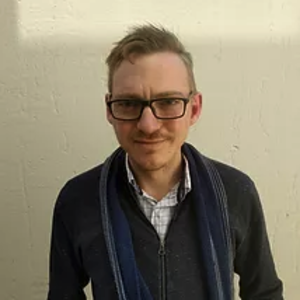






Palm Tree Clinic
Verified Center
This provider's information has been quality-checked by Recovery.com's Research Team for accuracy and completeness, including center verification through appropriate third-party organizations.
Treatment Focus
You can get treatment for eating disorders at this center, helping you navigate symptoms, build coping tools, and restore your physical health under expert care.
Primary Level of Care
Offering intensive care with 24/7 monitoring, residential treatment is typically 30 days and can cover multiple levels of care. Length can range from 14 to 90 days typically.
Treatment Focus
You can get treatment for eating disorders at this center, helping you navigate symptoms, build coping tools, and restore your physical health under expert care.
Primary Level of Care
Offering intensive care with 24/7 monitoring, residential treatment is typically 30 days and can cover multiple levels of care. Length can range from 14 to 90 days typically.
Private Pay
You pay directly for treatment out of pocket. This approach can offer enhanced privacy and flexibility, without involving insurance. Exact costs vary based on program and length of stay. Contact the center for specific details.
Palm Tree Clinic
Palm Tree Clinic
About Palm Tree Clinic
Established in 2012 and located in beautiful Cape Town, South Africa, Palm Tree Clinic offers residential and outpatient services in a boutique facility. Palm Tree Clinic is passionate about helping clients find freedom from anxiety, bipolar disorder, personality disorders, trauma, eating disorders, relationship issues, and addiction. Their multidisciplinary, empathetic team of professionals provide personalized treatment plans that cater to the uniqueness of each client. With only 15 beds, their intimate setting allows for plenty of individual care and a variety of group therapy options. Taking a well-rounded, holistic approach, Palm Tree Clinic also provides medication management, occupational therapy, nursing and medical assistance, and meditation and mindfulness therapy.
Expert And Compassionate Staff
The staff at Palm Tree Clinic provide expert care in multiple areas of mental and physical health. Psychiatrists, general practitioners, psychologists, physiotherapists, a dietitian, occupational therapists, a social worker, and nursing staff ensure that clients receive truly multidisciplinary care throughout their treatment. Upon admission, Palm Tree Clinic’s psychiatrists perform an assessment and consultation to craft the best treatment plan for each client. Medication management and clinical services help keep clients healthy as they work through Palm Tree Clinic’s residential program.
Whole-Person Healing
Palm Tree Clinic uses a holistic approach to heal the mind, body, and spirit of each client. Psychiatric, clinical, and emotional care combine to offer clients well-rounded treatment, with a unique blend of therapies tailored to their needs. Throughout their treatment, clients can learn how to better manage stress, emotions, and improve relationships with others and themselves.
A Serene Setting
Palm Tree Clinic provides a serene setting to encourage healing. They’re situated on the banks of Rietvlei Dam, with the scenic Table Mountain serving as a backdrop. The facility itself provides a cozy, home-like feel with lounges and a braai area. Patients can enjoy spacious rooms, an on-site gym, and an outdoor zen garden, perfect for meditative walks or just relaxing.
Center Overview
Treatment Focus
You can get treatment for eating disorders at this center, helping you navigate symptoms, build coping tools, and restore your physical health under expert care.
Pricing and Program Length
Estimated Center Costs
The cost listed here ($6,615 USD), is an estimate of program cost. Center price can vary based on program and length of stay. Contact the center for more information. Recovery.com strives for price transparency so you can make an informed decision.
Meet Your Care Team

Kumarie Moodliar
Psychiatrist

Susan Rabe
Psychiatrist

Avani Maharaj
Psychiatrist

Neil Victor
Clinical Psychologist

Elise Beeby
Clinical Psychologist

Fergus Ashburner
Clinical Psychologist

Neil Horn
Psychiatrist

Antoinette van Huyssteen
Dietician

Sunette van der Merwe
Social Worker

Sunderan Moodley
General Practitioner

Martin Dutton
Clinical Psychologist




Levels of Care




Your Care Options
Specializations
Personality Disorders
Personality disorders destabilize the way a person thinks, feels, and behaves. If untreated, they can undermine relationships and lead to severe distress.
Anxiety
Anxiety is a common mental health condition that can include excessive worry, panic attacks, physical tension, and increased blood pressure.
Bipolar
This mental health condition is characterized by extreme mood swings between depression, mania, and remission.
Depression
Symptoms of depression may include fatigue, a sense of numbness, and loss of interest in activities. This condition can range from mild to severe.
Trauma
Some traumatic events are so disturbing that they cause long-term mental health problems. Those ongoing issues can also be referred to as "trauma."
Who We Treat
Young Adults
Emerging adults ages 18-25 receive treatment catered to the unique challenges of early adulthood, like college, risky behaviors, and vocational struggles.
Men and Women
Men and women attend treatment for addiction in a co-ed setting, going to therapy groups together to share experiences, struggles, and successes.
Midlife Adults
For adults ages 40+, treatment shifts to focus on the unique challenges, blocks, and risk factors of their age group, and unites peers in a similar community.
Pregnant Women
Addiction and mental health treatment meets the clinical and psychological needs of pregnant women, ensuring they receive optimal care in all areas.
Approaches
Evidence-Based
A combination of scientifically rooted therapies and treatments make up evidence-based care, defined by their measured and proven results.
Individual Treatment
Individual care meets the needs of each patient, using personalized treatment to provide them the most relevant care and greatest chance of success.
Personalized Treatment
The specific needs, histories, and conditions of individual patients receive personalized, highly relevant care throughout their recovery journey.
Therapeutic Community
Therapeutic communities allow patients to contribute to the success and progress of their community, through healthy behaviors or even basic chores.
Therapies
1-on-1 Counseling
Patient and therapist meet 1-on-1 to work through difficult emotions and behavioral challenges in a personal, private setting.
Meditation & Mindfulness
A practiced state of mind that brings patients to the present. It allows them to become fully aware of themselves, their feelings, and the present moment.
Art Therapy
Visual art invites patients to examine the emotions within their work, focusing on the process of creativity and its gentle therapeutic power.
Experiential Therapy
With this approach, patients heal by doing. Therapists help patients process difficult emotions to speak, using guided activities like art or dance.
Family Therapy
Family therapy addresses group dynamics within a family system, with a focus on improving communication and interrupting unhealthy relationship patterns.
Hypnotherapy
A hypnotherapist guides patients through a trance-like state. This helps them identify and process subconscious emotions and regain inner control.
Interpersonal Therapy
This brief and structured therapy addresses present relationships and improves overall communication at work, home, and other social settings.
Life Skills
Teaching life skills like cooking, cleaning, clear communication, and even basic math provides a strong foundation for continued recovery.
Conditions We Treat
Pornography Addiction
A person with a porn addiction is emotionally dependent on pornography to the point that it interferes with their daily life and relationships.
Schizophrenia
Schizophrenia is a serious mental health condition that causes hallucinations, delusions, and disordered thinking.
Personality Disorders
Personality disorders destabilize the way a person thinks, feels, and behaves. If untreated, they can undermine relationships and lead to severe distress.
ADHD, ADD
ADHD is a common mental health condition caused by dopamine imbalance. Common symptoms include inattention, hyperactivitiy, and impulsivity.
Anger
Although anger itself isn't a disorder, it can get out of hand. If this feeling interferes with your relationships and daily functioning, treatment can help.
Anxiety
Anxiety is a common mental health condition that can include excessive worry, panic attacks, physical tension, and increased blood pressure.
Bipolar
This mental health condition is characterized by extreme mood swings between depression, mania, and remission.
Burnout
Burnout entails mental and physical exhaustion, and leads to a severe lack of fulfillment. This condition is often caused by overwork.
Codependency
Codependency is a pattern of emotional dependence and controlling behavior. It's most common among people with addicted loved ones.
Substances We Treat
Co-Occurring Disorders
A person with multiple mental health diagnoses, such as addiction and depression, has co-occurring disorders also called dual diagnosis.
Languages
Aftercare
Care Designed for Your Needs
Personal Amenities
Amenities
Special Considerations
Center Pets
Addiction and mental health facilities with pets allow patients to interact with friendly dogs, cats, horses, and in some cases, even dolphins.
Flexible technology policies
Centers with flexible technology policies allow professionals to stay in touch with work and give patients a greater sense of connection and normalcy.






